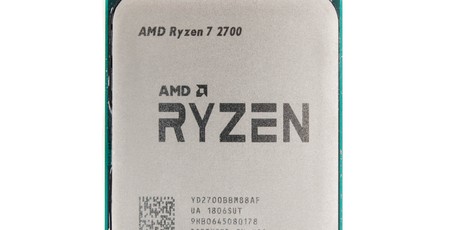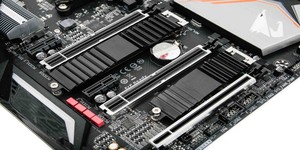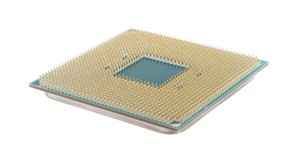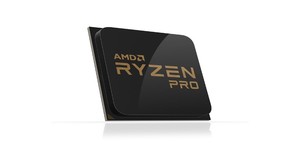
Overclocking
With the original Ryzen 7 1700, we managed to hit 4.05GHz using a standard maximum vcore of 1.425V that we consider the top of what's safe for everyday use. That was a massive increase not just over the all-core boost, but also of the maximum boost of 3.7GHz, so it wasn't surprising to see such a huge difference from one of the best-value AMD first generation Ryzen CPUs.
With the Ryzen 7 2700, we could only manage a little higher at 4.1GHz using the same voltage, and that's obviously quite a step down from the 4.25GHz we managed with the Ryzen 7 2700X. It's a lottery, of course, although so far, second-generation Ryzen CPUs seem to be behaving like AMD said Ryzen would, with X-edition CPUs clocking higher, which wasn't always the case with the first-generation models; our Ryzen 7 1700 actually outstripped the Ryzen 7 1800X. This wasn't the case here, at least not with our own second-generation samples.
Performance Analysis
With an all-core boost significantly lower than the Ryzen 7 2700X, it wasn't a surprise to see the Ryzen 7 2700 posting much lower results in HandBrake and Cinebench - two heavily-threaded benchmarks. In Cinebench the stock speed scores sat at 1,810 for the X-edition chip and just 1,550 for the Ryzen 7 2700, with the Ryzen 7 1800X sitting between them. However, this was still eight percent faster than the Ryzen 7 1700 and 11 percent better than the Core i7-8700K. The importance of overclocking the Ryzen 7 2700 is pretty clear too, with that score rising a massive 300 points to 1,868, which left the Ryzen 7 1800X in its dust, and was only a little behind the Ryzen 7 2700X and over 200 points faster than our 5GHz Core i7-8700K. Not bad for a £250 CPU.
HandBrake usually leans towards Intel CPUs, but while the Core i7-8700K matched the eight-core AMD CPU at stock speed and when they were overclocked, it costs £50 more, making HandBrake a win for AMD in terms of value, although the Ryzen 7 2700X was much quicker and still also costs less than Intel's mainstream flagship. The lower boosting frequencies also hurt the Ryzen 7 2700 in single-threaded tests with some significant differences between it and the two X-edition CPUs, which shows just how far AMD is pushing them and how they're potentially better options for stock speed systems. It clawed a little ground back when overclocked, though, but the X-edition CPU was still a little quicker.

Gaming was another area that those lower frequencies impacted upon with the 35fps minimum frame rate in Ashes of the Singularity way down the chart but actually equal to the previous flagship, the Ryzen 7 1800X, and the same was true in Deus Ex. Overclocking had a huge impact in both games, with the minimum frame rate rising from 61fps to 68fps in Deus Ex and from 35fps to 41fps in Ashes of the Singularity, both matching the best results we saw from the Ryzen 7 2700X and in Ashes of the Singularity. This was enough to eclipse the Core i5-8600K, too. As we saw in our Ryzen 7 2700X review, using faster RAM than our 3,000MHz kit will yield even higher frame rates. Power consumption was a particularly strong point with the load draw from the wall of 126W at stock speed undercutting every other CPU on test.
Conclusion
There are some positives and negatives to take away from this review of the Ryzen 7 2700, and we'll start with the latter. Sadly, it won't overclock to Ryzen 7 2700X speeds (going by our samples), meaning that the small price difference between the two is maybe worth paying for overclocking enthusiasts out there, while the situation is even more clear cut at stock speed - you'd opt for the Ryzen 7 2700X every time except if you absolutely must have a 65W eight-core CPU.
It's easy, though, to miss the positives. We're dealing with a CPU that's significantly quicker than its predecessor yet costs £80 less at launch, and that's a massive achievement. It's also got the measure of the Core i7-8700K in all but a select few tests and even here, applying an overclock and using faster memory will see the gaps narrow. Ultimately, the only real contender is AMD's own Ryzen 7 2700X, which if our samples are anything to go by, might overclock further and offers much better stock speed performance and a better cooler. It's otherwise a great CPU for the cash, especially if you want to build a low-power system or one that's limited to low-profile coolers with eight cores - more than you can get with Intel at this TDP, where those cores are also locked in terms of speed.


MSI MPG Velox 100R Chassis Review
October 14 2021 | 15:04








Want to comment? Please log in.